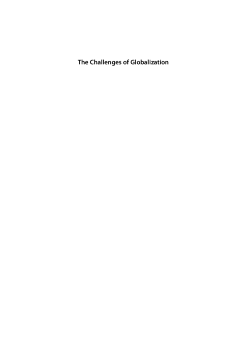
Additional Information
Book Details
Abstract
In the mid nineteenth century a process began that appears, from a present-day perspective, to have been the first wave of economic globalization. Within a few decades global economic integration reached a level that equaled, and in some respects surpassed, that of the present day. This book describes the interpenetration of the German economy with an emerging global economy before the First World War, while also demonstrating the huge challenge posed by globalization to the society and politics of the German Empire. The stakes for both the winners and losers of the intensifying world market played a major role in dividing German society into camps with conflicting socio-economic priorities. As foreign trade policy moved into the center stage of political debates, the German government found it increasingly difficult to pursue a successful policy that avoided harming German exports and consumer interests while also seeking to placate a growing protectionist movement.
Cornelius Torp is Lecturer in the Department of History at the Martin Luther University of Halle (Germany). He is the editor of Imperial Germany Revisited: Continuing Debates and New Perspectives (with Sven Oliver Müller, 2011) and the author of Max Weber und die preußischen Junker (1998).
“This book will serve as an eminently useful touchstone, not only for German, economic, and comparative history, but also for studies in political economy and for globalization generally. Useful for graduate students, faculty, and research libraries especially.” · Choice
“… an admirable book in many respects. Its author displays great sensitivity to the political complexities involved in making economic policy and a willingness to concede that economic factors, whether ‘underlying’ or manifest in specific interests, do not always explain policy changes… Unlike some economic historians, the author not only acknowledges problems with the data he must use but also takes serious account of those problems in developing his analysis. The range of theories he employs to frame his interpretation is broad and his discussions of them are thoughtful… constitutes a major contribution to German economic history.” · German History
“Torp has produced an intelligent book, which deserves to be read by any serious scholar of modern German trade policy and economic history…[His] prodigious research on the dimensions of German trade and the embeddedness of German tariff policy within an integrating global capitalist system will serve historians in all kinds of important ways.” · Journal of Modern History
